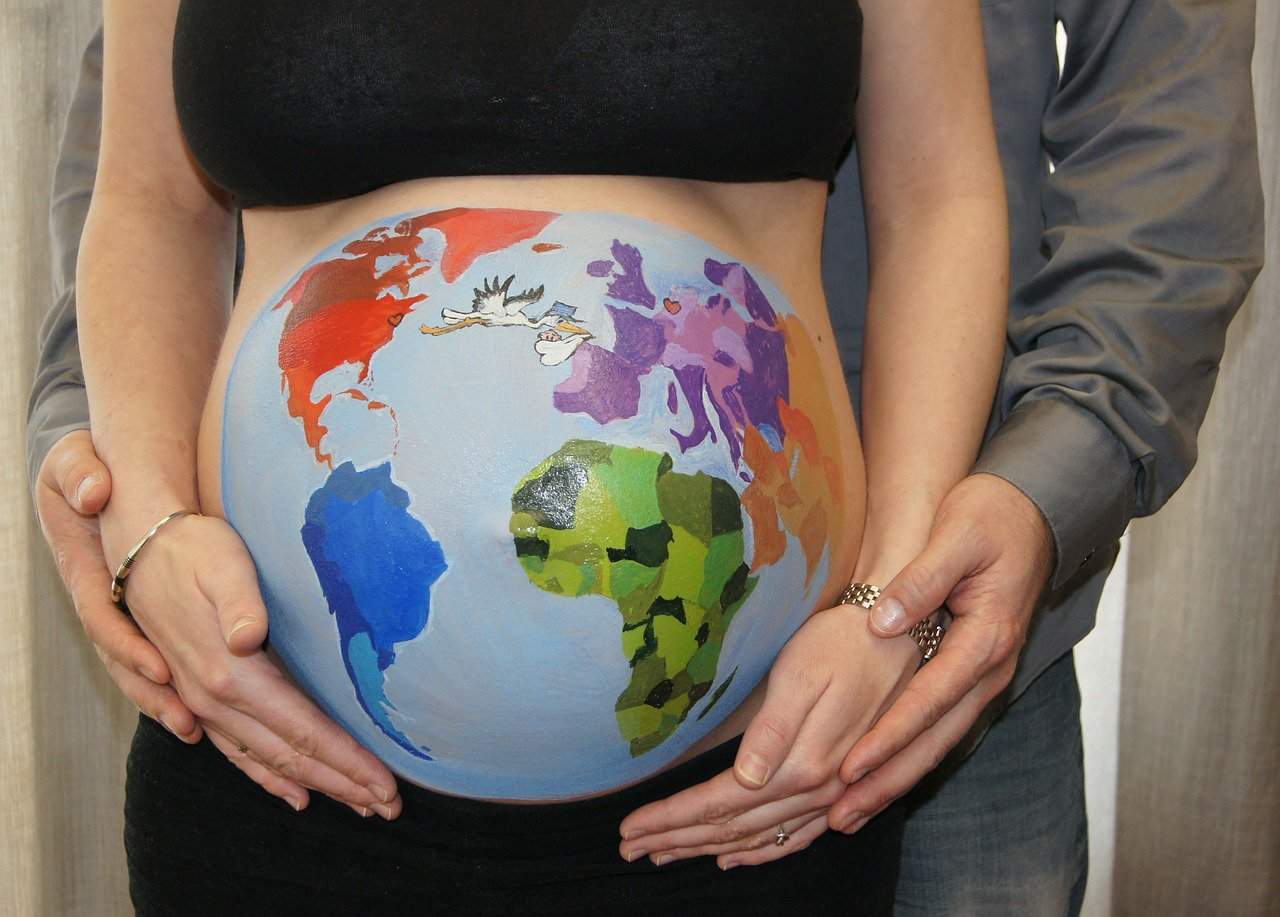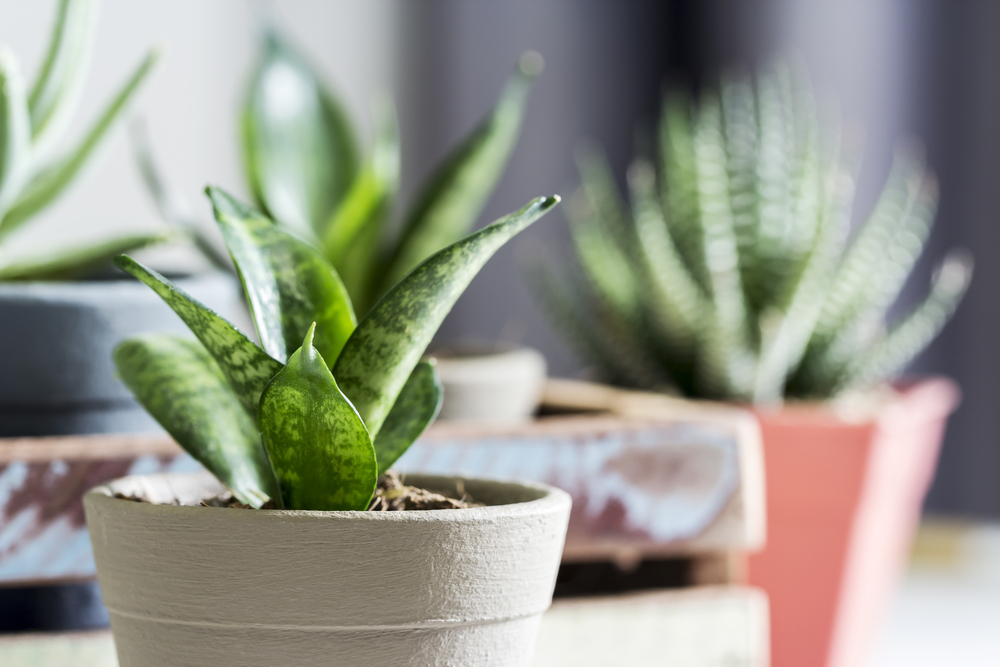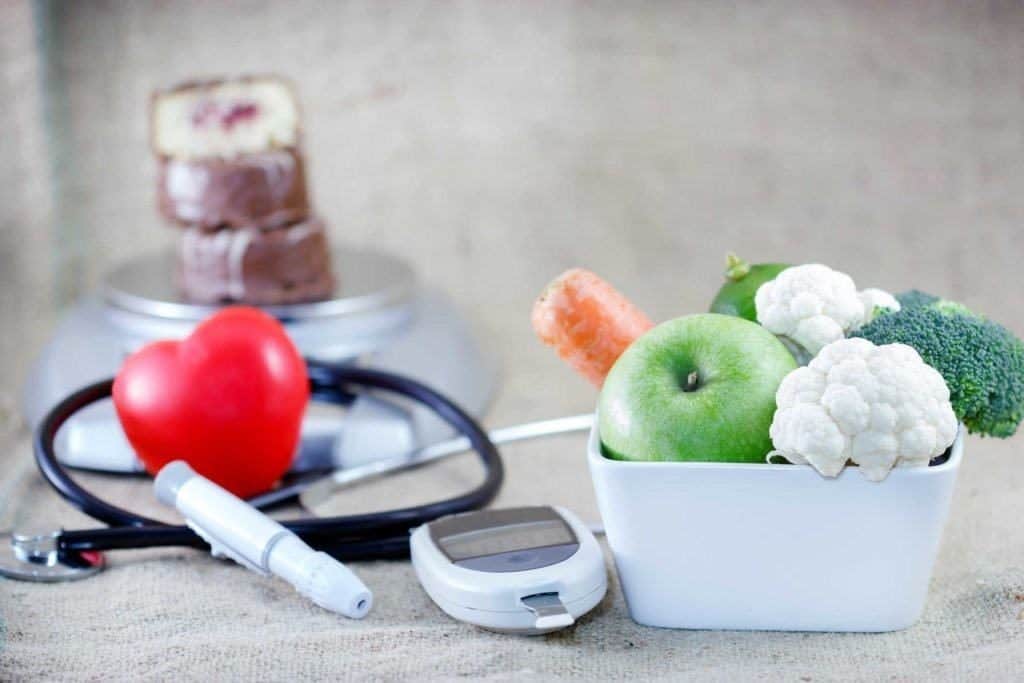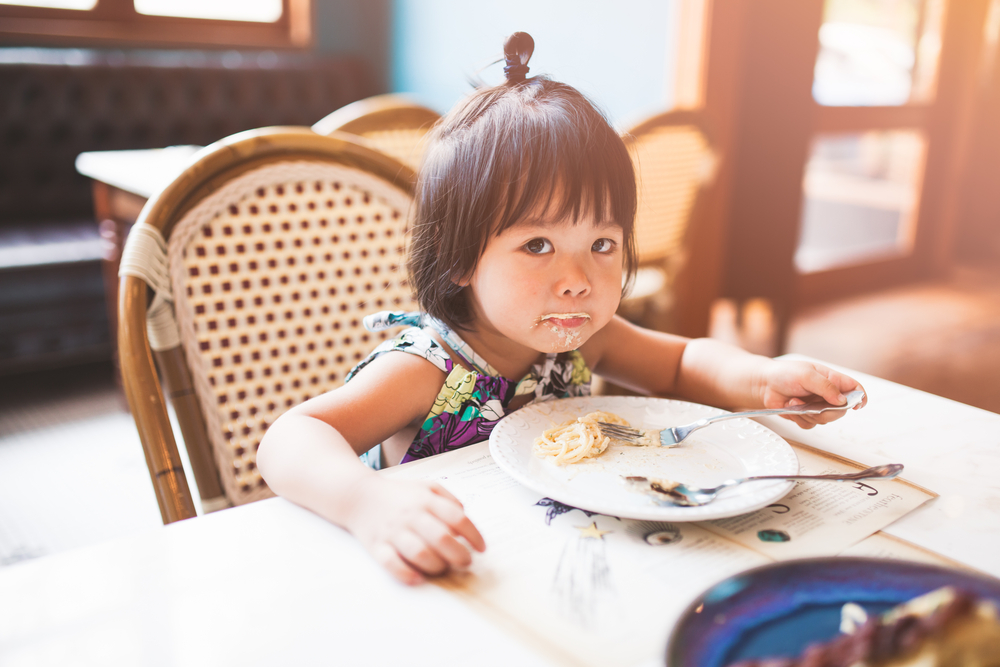Contents:
Medical Video: 15 Strange Things That Seem Normal Only In South Korea
Every pregnancy is a unique event, as well as customs and traditional ceremonies that follow it. However, every custom and tradition still has one common goal: to ensure the safety of the mother and child, and the ease of birth later - no matter how strange it is to make you scratch your head.
Here we see some interesting pregnancy habits from various parts of the world. (Note: Not everyone from this culture always adheres to this belief.)
Pregnancy traditions from various parts of the world
Indonesia
Talking about Indonesia, closely related to the "seventh anniversary" tradition, celebrates the mother's womb age reaching the seventh month. However, different places, different ways to celebrate. On Java, for example, there is a Tingkeban ceremony with a number 7 (7 close relatives who bathe the mother, 7 splashes with flower water 7, 7 cloth covers for the mother's body when taking a different motif, and 7 kinds of fruit served as salad) . In the seventh splash will be included eel that will glide over the mother's stomach, indicating that the baby's birth can run smoothly (slippery like an eel).
"Nujuhbulanan" in Bali is called the Magedong-gedongan ceremony. This ceremony is carried out when the baby is 5-6 months old in Bali (approximately six months, in the calendar) to purify the fetus in the womb, so that later the child will be born Suputra - the position of the baby in the womb is not abortion and so he is born as a virtuous child . At this ceremony also provided offerings consisting of Beetle leaves, catfish, mackerel fish, eels, carp fish, tumbak tiing, and paso from clay. Pregnant women in Bali also abstain from consuming octopus, because octopus is considered to be difficult for labor.
In Papua, pregnant women will undergo ritual isolation from the community. This ritual is based on the assumption that the blood released by women during menstruation or during childbirth (labor) is blood that brings bad things to the surrounding environment. Activities of pregnant women such as eating, cooking, bathing, and sleeping for approximately the last 2-3 weeks to the delivery process will be carried out alone in the middle of the wilderness or on the beach. Did you know, traditions like this are still common in Pakistan and Nigeria?
Japan
Japanese people believe that pregnant women should not eat salty or spicy foods. In addition, pregnant women in Japan also should not see fire to avoid the birth of the baby later. During pregnancy, mothers often receive gifts in the form of shirasu, small white fish high in calcium to meet calcium needs. The daily food of pregnant women in Japan almost always includes shirasu, rice, miso soup, and nori (seaweed). Pregnant women in Japan are also advised to always think positively, see positive images, and listen to music for the good of the womb's fetal development.
During labor, pregnant women are expected to be as calm as possible. Screaming in pain or complaining during the process is a sign of embarrassment to become a new mother. There are traditional Japanese beliefs that believe that labor pain helps prepare a woman to be a good mother, so labor pain must be borne in the heart.
After giving birth, there is a ritual called Ansei for new mothers. New mothers are asked to have a complete rest in their parents' homes, three to four weeks after delivery. This break is intended as a moment of peace (ansei), where new mothers will be spoiled by their family and close family and are forbidden to do homework so that he can devote all his time to truly recovering and caring for the baby. Relatives and extended families are not allowed to meet the baby or bestow money on new parents until the mother and baby have enough time to unite and recover fully.
China
In China there is a belief that after marriage, the husband must carry his wife and walk on coal when entering the house to make sure he can give birth without problems later. Then when the wife got pregnant, she faced a number of unusual and surprising restrictions.
During pregnancy, the mother's mind and body greatly affect the personality and nature of the fetus. For this reason, Chinese women are asked to control their thoughts and actions; avoid gossiping, laughing loudly, anger, and hard physical labor. He also may not have sex, see colors that collide, and may not attend funerals. There is a belief that no construction work can be done at the home of a pregnant woman. Giving gifts before birth is also considered to bring bad luck in Chinese culture.
Chinese people also believe that what is eaten and the eating patterns of pregnant women have an influence on the appearance of the baby. Mothers are required to only eat light or pale foods, to make the baby's skin brightly colored. Reading good literature during pregnancy is believed to have a positive effect on the fetus. On the other hand, to ward off evil spirits some knives must be placed under the mattress of the pregnant woman's bed.
Similar to in Japan, new postpartum mothers are required to take a full month's rest and "skip" from all home work to give themselves and the baby recovery time, while all their daily work is carried out by their immediate family. Some women are prohibited from getting wet (even brushing their teeth or washing their hair), going outside, eating raw vegetables, or drinking cold drinks.
South Korea
Japan, China, and South Korea - these three neighboring countries have roots in cultural traditions that are not much different, which is also reflected in celebrations around pregnancy and childbirth.
Koreans believe that the thoughts and experiences of pregnant women have a direct effect on babies, so they need to see as much beauty as possible, and feel as much positive things as possible - the more beauty and beauty you "digest", your baby will be born more charming . This belief is held firmly, so they avoid eating any "fragile" foods, such as cookies or biscuits, for fear that they will make their babies sick, and they don't eat ducks, for fear that their children will have webbed feet.
South Korean people also prioritize steadfastness, and women are expected to endure the pain of childbirth and not express their complaints. Instead of pain medication, they tend to use alternative methods such as aromatherapy, accupressureand music to reduce both pain and anxiety about labor. Most women are also forced to accept episiotomy, because they do not know that they can ask the doctor not to do it.
After birth, new Korean mothers have a "holiday" period called San-ho-Jori, usually in their home or in their mother's house. For 21 days they eat, sleep and their homework will be carried out temporarily by relatives to serve all other needs. While the old tradition prevents women from "masking" or touching water (not bathing or brushing teeth) is not common anymore, they are still not allowed to be in an air-conditioned room, no matter how hot the weather is.
Bangladesh
Pregnancy is not officially announced in Bangladesh until the seventh month of pregnancy to avoid a kind of malicious intent from those around it, because at this age the baby is strong and will survive if the mother gives birth early. Pregnant women must wear clothes that cover their "distended" abdomen to avoid the bad intentions of others, also avoid sitting or sleeping in the corner of the room for fear that they will be captured by "evil eyes" (Chok / nojor fight).
Also, if your skin looks brighter and brighter during pregnancy, you are believed to have a baby girl, whereas if you have dark circles under your eyes, you are considered to have a boy. Some foods are also often a taboo for consumption of pregnant women, such as - tea leaves or cha (too much caffeine) and pineapple which are thought to trigger early contractions (similar beliefs in other cultures).
After giving birth, family members advise new mothers not to leave home for 40 days, as a protection from negative auras.
Turkey
For initial instructions on the sex of the baby, pregnant women in Turkey will choose to sit on one side of the sofa: one with a knife under the pillow and a pair of scissors on the other. If he sits on a sofa cushion containing scissors, the baby is a girl; if he sits on a knife, his son. Cravings are also believed to show the baby's gender: a pregnant woman who craves sweet candy / something sweet is thought to have a boy, while the desire for sour food shows a woman. Eating lots of red meat will produce boys; eat lots of vegetables, women. If a pregnant woman eats eggs, the baby will be naughty. Meanwhile, certain unfulfilled food cravings can cause birthmarks in babies in the form of these foods.
Turkish women who are pregnant should avoid walking barefoot to avoid infertility, miscarriages, and waste gas. This is done mainly because almost every disease in Turkey is related to cold air, and this means that many Turks will not use air conditioning in the summer, and wrap / wrap babies even on the hottest days. After birth, the mother's body temperature must continue to be warm while breastfeeding, because cold milk will cause stomach pain.
Turkish belief says that if a pregnant woman smells food, she must taste it. In theory, restaurant servants might chase pregnant women on the road with food samples to avoid bad luck. In addition, according to Turkish customs, pregnant women must see beautiful and good things, for fear that babies can take negative characteristics from people who are bad, disabled, or dead. Pregnant women are also prohibited from seeing bears, monkeys or camels to avoid bad luck.
Mexico
Mexican belief is that the body of pregnant women will crave a specific food needed for the growth of healthy babies, and that unfulfilled cravings can cause birth defects.
They also assume that drinking milk will make the baby grow bigger, and drinking chamomile tea will help in having a smooth delivery process. Mexicans also believe in a number of superstitions such as: observing a lunar eclipse will cause the baby to have a cleft lip (the same belief is also found in Uganda, you know!), Or the appearance of a baby may resemble a certain fruit if the mother craves the fruit. Pregnant women in Mexico are also urged to only bathe in warm water that is too hot allegedly causing circulatory problems, and water that is too cold can make the pelvis stiff and cause long, hard births.
During birth, all doors and windows are tightly closed to protect mothers and babies from evil forces that can penetrate these intimate and vulnerable processes.
Many Latin American countries also follow the quarantine tradition, 'La Cuarentena,' which means mothers are required to undergo six weeks of total rest after giving birth and eating healthy food, to allow the body to recover from stress, trauma, and physical fatigue during pregnancy and labor. Sex, certain foods, and any burdensome activities are strictly prohibited.
Portugal
In Portugal there is a belief that pets such as cats or dogs must be kept away from pregnant women. This is done to avoid babies born hairy.
People in Portugal also believe that if a pregnant woman wants to give birth to a baby girl, she must eat round fruits and vegetables. If he wants to get a baby boy then he must eat long vegetables, like carrots or cucumbers. After the baby is born, if he cries excessively, it is believed that he has stomach problems or "Verado Bucho". To overcome this, babies will be taken to local doctors to be treated with oil and prayer, intended to stop the pain in the stomach.
India
In the traditional Indian belief system, a pregnant woman is considered ‘hot. During pregnancy she must avoid eating hot food and eat more cold food to achieve a balance in body temperature. "Hot food" includes several fruits such as bananas, papaya, and coconut, meat, fish, chicken, potatoes, red chili, and okra. 'Cold food' includes dairy products (yogurt and buttermilk, especially), vegetables, and other fruits.
The common thread in India is to bless mother and pray for the welfare of mother and baby, bring all kinds of blessings and gifts - money, clothes or even jewelry - a kind of "baby shower", but all the presents are for mom. A Hindu belief says that the number seven and nine are lucky in pregnancy, while number eight is not. Therefore, why is the seventh or ninth month of pregnancy the best time to hold a baby shower. Also, according to Indian tradition, giving out clothes or other items for babies before birth is considered to be unlucky (perhaps because in the past, the percentage of babies dying during childbirth is high).
After giving birth, women are considered 'cold', and for now, they will be encouraged to eat 'hot food' to restore body temperature balance. Eating 'cold food' after childbirth is believed to cause a variety of complaints, including digestive problems and diarrhea in infants.
When the baby is born, he will be wrapped in old clothes given by several other family members. Fabrics from clothing "inheritance" are considered to have softness for baby's skin and provide aura and positive family values that can be passed on to the baby.
READ ALSO:
- The 6 Most Frequently Asked Questions Regarding Exclusive Breastfeeding
- 4 Things You Need to Know About the Placenta (Ari-Ari Baby)
- What You Should Do If You Position the Breech Baby












